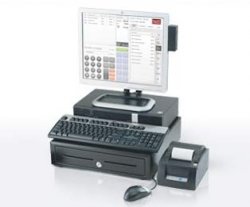Intuit cash register Plus free Edition 2010
Sure, you pay tax on your business profits. But there’s good news, too. You can potentially reduce your taxable income significantly by taking all the deductions you’re entitled to as business expenses.
Knowing which expenses are deductible is important. If you are a shareholder or partner in the 25% tax bracket, for example, every dollar of deductions saves 25 cents of taxes. If you are located in a state that imposes an income tax, each write-off is worth even more because it will save you state taxes, as well.
To determine whether you can deduct an expense, ask yourself: Is this expense both ordinary and necessary to the business? The IRS requires both elements.
- An expense is ordinary if it is common and accepted in your industry.
- An expense is necessary if it is helpful and appropriate for your business.
Common small business deductions include costs for:
AutomobilesAs a small business owner, you can deduct automobile expenses for visits to clients, customers or travel to business meetings away from your regular workplace. If you have a home office, a drive from your home to a supplier and back home again is a 100 percent deductible business expense.
When figuring expenses, you may choose between taking the standard mileage rate (which generally changes every six months to a year), or deducting your actual expenses for items such as gas, oil changes, tires, repairs, preventive maintenance, insurance and registration. If you choose to deduct your actual expenses in the year you start using your car for business, you can't switch to the standard mileage rate later. If you choose the standard mileage method first, you can switch to actual expenses in a later year.







